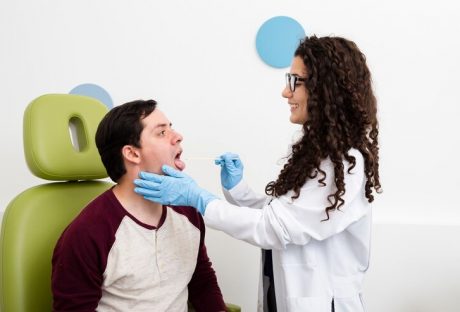Temporary health insurance or short-term insurance, as the name implies, can provide temporary medical coverage.
It is an expensive option that can protect against unforeseen accidents or sickness when you are in between health insurance plans or outside the enrollment periods.
Temporary health insurance plans are available all year round and provide next-day coverage. Keep scrolling to learn about temporary health insurance: everything you need to know.
What Is Temporary Health Insurance?
Temporary health insurance caters to preventive care, emergency care, doctor visits, and urgent medical care. Some plans may also cover prescription drugs.
The medical coverage of a temporary health insurance plan is limited. For example, it doesn’t cover pre-existing medical conditions.
But, temporary health insurance is solving more issues that are related to emergency conditions. Like you have to hire an ambulance or need immediate emergency treatments.
What Does Short-Term Health Insurance Cover?
This plan isn’t comprehensive and doesn’t cater to the Affordable Care Act’s ten essential benefits, including prescription drugs, pediatric services, Lab services, hospitalization, mental health, and addiction services.
Moreover, short-term health insurance doesn’t cater to ACA essential benefits such as maternity care. Nonetheless, some temporary health insurance plans may cover some of the above services. Also, like in a comprehensive plan, you can pay copayment, coinsurance, or deductible to get the benefits.
Before buying the plan, carefully check the plan’s benefits and limitations. Then, you will be able to know what is covered and what isn’t.
Temporary medical plans usually have to be approved by medical underwriters. Henceforth, be ready for a series of your medical history questions.
Who Is Best Suited For Temporary Medical Insurance?
How to get temporary health insurance? For selecting the best temporary medical insurance, you have to match up some of the qualities. Then your medical insurance selections will become much more accurate and secure.
Here are some of the facts you have to check before selecting the best temporary health insurance.
- People are transitioning to jobs. If you are changing your employer, you certainly need medical coverage before your next boss’s health benefits kick in.
- Students or dependents. If you hit 26 years of age, you are no longer covered by your parent’s or guardian’s insurance plan. Thus, a short-term health insurance plan will be ideal as you transition to a comprehensive plan.
- Older people are waiting for Medicare enrollment. After retiring, you may depend on short-term health insurance before Medicare kicks in.
- New individuals in the USA can rely on temporary health insurance before their new employer coverage starts.
Temporary health insurance can also be ideal for people in these circumstances.
What’s The Cost of Short-Term Health Insurance?
The premiums vary depending on various factors such as age, location, and gender. Deductible, coinsurance, copay, out-of-pocket costs, and total policy coverage amounts affect the premium cost.
Check out the cost comparison pivohealth.com. Temporary health insurance: Everything you need to know, plan carefully and know how much it will cost you. How much is temporary health insurance?
Temporary health insurance has different plans and pricing structures. You have to compare the prices and the services for selecting the best short-term health insurance.
What To Consider Before Buying A Temporary Health Insurance Plan
Want to buy temporary health insurance? Then you have to match up some of your requirements. Read through the essential facts which you must consider before buying a temporary health insurance plan.
Here are three things that you need to consider for buying an insurance plan.
- Coverage period. Find a plan that fits your needs. If you are out of comprehensive cover for a long, consider wider coverage.
- Exclusions in your plan.
- Approval and renewal. Ask if the plan has a non-refundable fee or if the approval is guaranteed. Though some plans can be renewed, it isn’t always the case.
Advantages Of Short-term Health Insurance Plan
The short-term temporary health insurance covers multiple types of plans, for example, post-hospitalizations and ambulance facilities. Some of the plans are also covering checkups and policies.
Here are three types of advantages to getting short-term health insurance plans.
- It can cater to your medical care needs when you need it.
- It can be canceled whenever you feel like it with no penalties.
- You can choose an annual plan if you need it.
Conclusion:
Before selecting the temporary health insurance plan, always go through the plan’s all features and services. Then select the best one. Every company offers different types of plans, and every plan has various features. Always read through all the documents and then sign the papers. So what is your planning? Are you thinking of getting health insurance? Let us know through the comment sections.
Read Also
- Small Business Guide to Private Health Insurance Exchanges
- How To Know If Your Health Insurance Covers Visits To The Chiropractor
- What Are The Most Important Insights Which the People Should Know About Coronavirus Health Insurance?





























